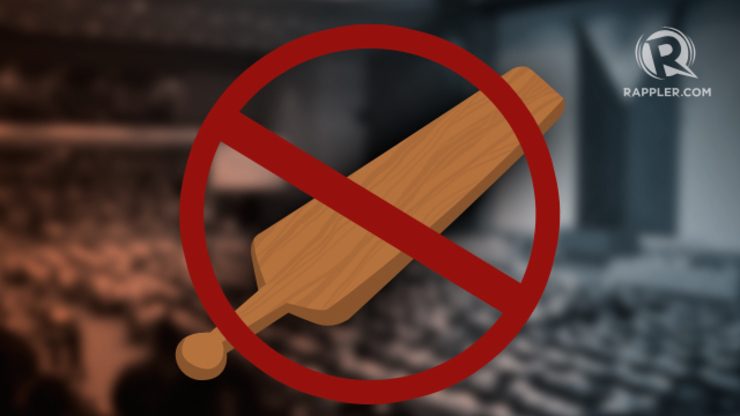SUMMARY
This is AI generated summarization, which may have errors. For context, always refer to the full article.

MANILA, Philippines – A lawmaker filed on Tuesday, July 8, a bill that seeks – once and for all – to end hazing in the Philippines.
“In order to stop hazing, it must be recognized by the law for what it is – a barbaric criminal act that compromises the integrity of any organization that employs it as a means of initiation,” Valenzuela City Representative Sherwin Gatchalian said in his explanatory note to House Bill 4714.
HB 4714 or the “Servando Act” – named after college student Guillo Cesar Servando who died after a hazing ritual on June 28 – repeals Republic Act 8049 or the Anti-Hazing Law which only regulates hazing conducted by fraternities, sororities, and other organizations.
The proposed bill prohibits hazing or any physical or psychological suffering, harm or injury to be inflicted on a person who wants to be admitted to an organization. Under the measure, any activity that humiliates, degrades, abuses, and endangers a neophyte, is also considered hazing.
Hazing also refers to unauthorized training procedures of prospective members of the Armed Forces of the Philippines and the Philippine National Police that results to physical and pyschological suffering, harm, or injury.
“We must ensure that no more aspiring and purposeful young people will meet a tragic and senseless end through hazing. Let the memory of Guillo Cesar Servando not be in vain,” Gatchalian said in a statement Tuesday.
Regulation of organizations
The bill mandates schools to regulate organizations, whether existing or newly-established. A faculty adviser will also supervise and monitor the activities of every group.
An initiation rite which does not cause harm to the organization’s applicants will only be allowed if it meets the following requirements:
- A written application must be submitted to school authorities 7 days before the initiation
- The application must indicate the date and place of the initiation rite, as well as the names of the applicants
- The initiation rite must not run for more than 3 days
Schools must come up with guidelines for the approval or denial of applications. During the initation, at least two school representatives must be present to make sure no hazing is conducted.
The Commission on Higher Education (CHED) and the Department of Education (DepEd) will, in turn, monitor the schools.
Fraternities, sororities, and organizations not based in schools are also covered by the bill.

Penalties for hazing
The proposed bill imposes a maximum penalty of life imprisonment and a fine of P3 million ($69,000*) if the hazing resulted to death, rape, sodomy, or mutilation.
Since the bill prohibits hazing, participating members involved in a hazing incident will also be penalized with life imprisonment and a fine of P1 million ($23,000).
The following persons will also be held liable:
- Owner of the place where hazing is conducted, if he/she has actual knowledge of the incident
- School authorities who give consent to the hazing or have actual knowledge of it but failed to take preventive action
- Members of the organization who are not present during the hazing but part of its planning
- Faculty advisers present during hazing
- Any person present during the hazing, unless he prevented the hazing or reported it to authorities
Gatchalian said the present Anti-Hazing Law has been ineffective in deterring hazing in the country. (READ: College students call for review of Anti-Hazing Law)
With proper regulation and stricter provisions against hazing and other fraternity-related violence, he said these organizations will be given “a chance to cure the cancers that have entered their culture.”
“Allowing these organizations to come out of the shadows and become formally recognized by the institutions that house them will empower and compel both the organizations and the institutions to exercise greater accountability and transparency in their actions,” Gatchalian added.
Servando was a college sophomore of the De La Salle-College of St Benilde, a school that prohibits fraternities and sororities on campus. De La Salle University condemned the recent hazing incident conducted by members of the Tau Gamma Phi fraternity that injured 3 other college students.
The University of the Philippines (UP) Diliman campus also recently confirmed a hazing incident conducted by the Upsilon Sigma Phi fraternity. (READ: UP president vows due process in hazing probe)
Unconfirmed reports say the incident – which severely injured a UP Diliman student – occurred earlier than the hazing involving the DLS-CSB students. – Rappler.com
*$1:P43.40
Add a comment
How does this make you feel?
There are no comments yet. Add your comment to start the conversation.